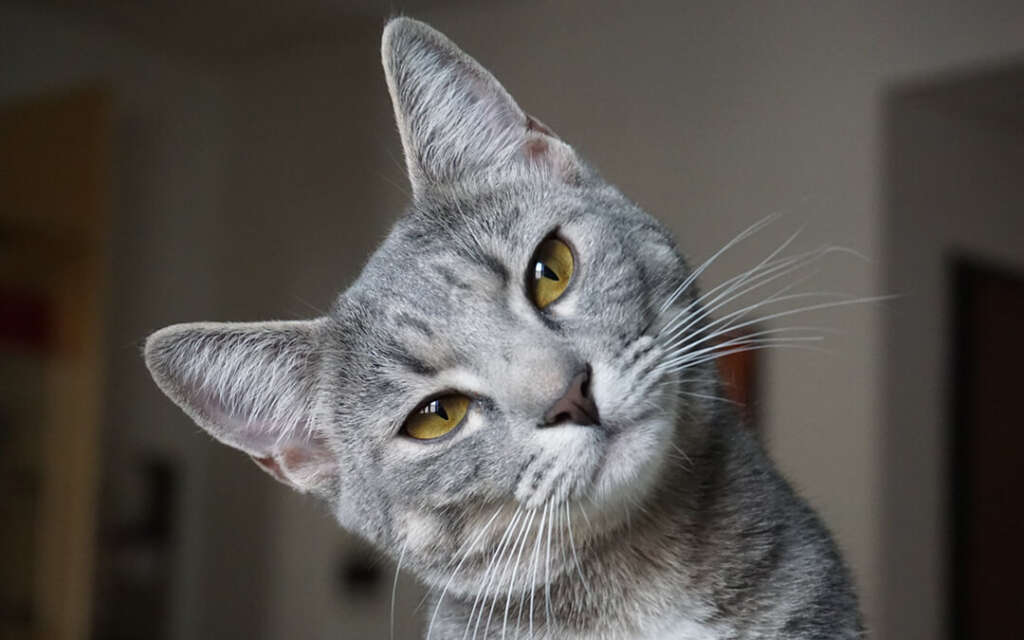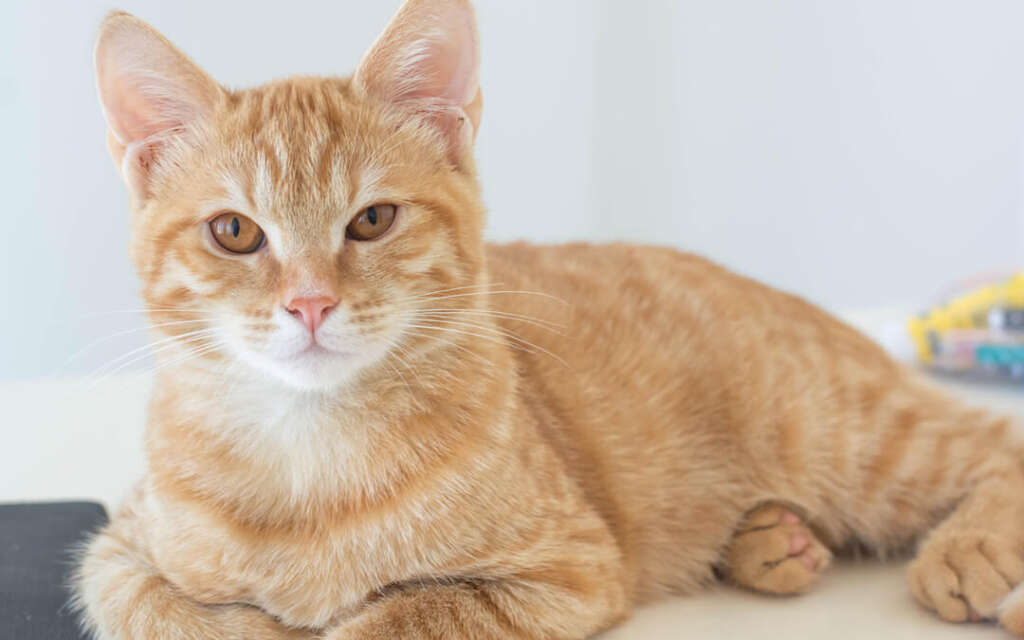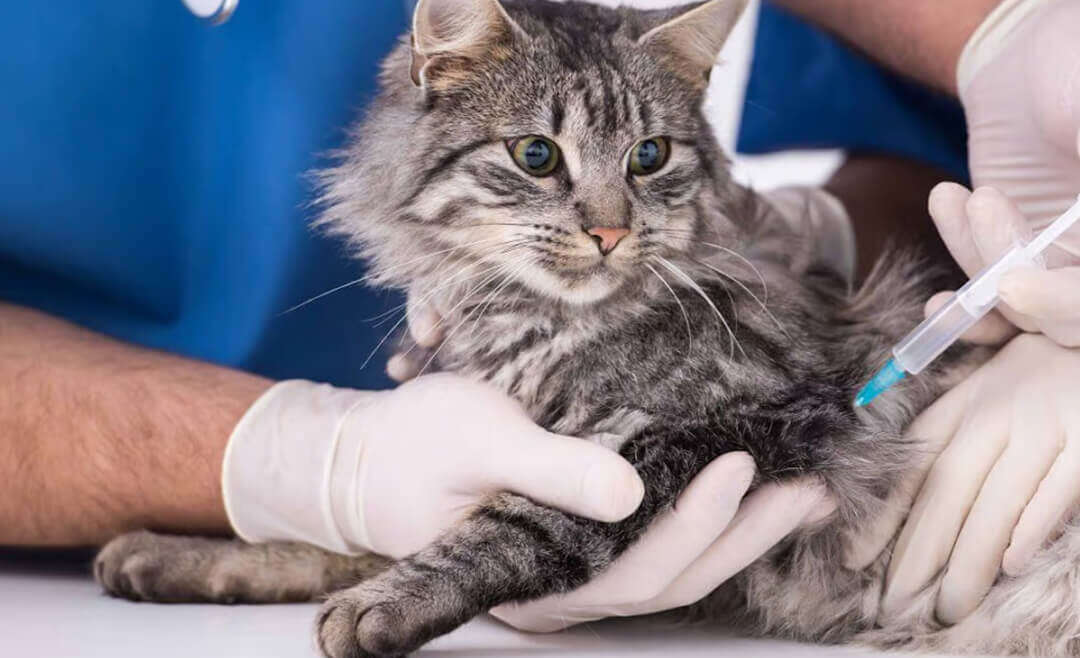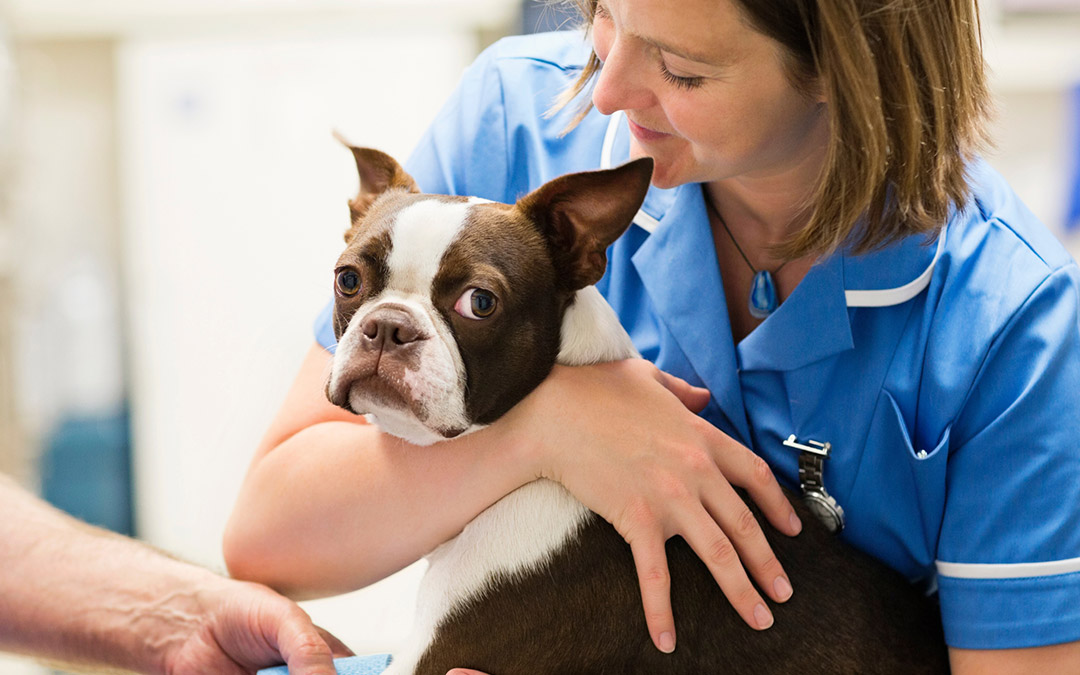As a cat owner, you want to do everything you can to keep your feline friend healthy and happy. One of the most important ways to protect your cat from life-threatening feline diseases is through vaccination, and the FVRCP vaccine plays a crucial role in this. But what exactly is the FVRCP vaccine, and why is it so important for your cat? This week, our very own Dr. Matt dives into the components of the FVRCP vaccine, its benefits, and what cat owners need to know about keeping their feline friends safe.
Understanding the FVRCP Vaccine
The FVRCP vaccine is a combination vaccine, meaning that a single injection protects your cat against multiple diseases (Feline Viral Rhinotracheitis, Calicivirus, Panleukopenia). This vaccine is also a core vaccine, meaning it’s recommended for every cat, whether they’re indoor or outdoor. This core definition comes from the American Association of Feline Practitioners (AAFP) as well as the American Animal Hospital Association (AAHA).
Components of the FVRCP Vaccine
Feline Viral Rhinotracheitis (FVR)
Feline Viral Rhinotracheitis, caused by the feline herpesvirus type (FHV), is a highly contagious virus that primarily affects the respiratory system. Symptoms of upper respiratory infections in cats include sneezing, nasal discharge, and eye inflammation. In severe cases, it can lead to complications such as pneumonia or chronic eye problems, which may require ongoing treatment. Cats infected with FVR often develop secondary infections, making early vaccination critical.
Calicivirus (C)
Feline calicivirus is another common viral infection that targets the respiratory system. Symptoms can include ulcers in the mouth, sneezing, nasal discharge, and fever. This virus can also cause severe weight loss and life-threatening complications, especially in immune-compromised cats. It’s known for causing joint pain, which can make it difficult for affected cats to move comfortably.
Panleukopenia (P)
Feline panleukopenia, also known as feline distemper, is one of the most dangerous diseases a cat can contract. This virus attacks the bone marrow and lymph nodes, leading to a dangerous drop in white blood cells, which are crucial for fighting infections. Symptoms include severe diarrhea, vomiting, fever, and lethargy. Without prompt treatment, Panleukopenia can be fatal, making vaccination against it absolutely critical.
Why is the FVRCP Vaccine Important?


The FVRCP vaccine protects your cat from these dangerous diseases. Each component of the FVRCP vaccine targets specific viral infections that are highly contagious and often deadly. By keeping your cat up-to-date with this vaccine, you are helping them avoid severe health issues.
In multi-cat households or areas with high cat populations, infectious diseases can spread rapidly. Even if your cat primarily stays indoors, they can still be exposed to these viruses through contact with people, other animals, or objects brought into the home. Vaccinating your cat helps reduce the risk of outbreaks, protecting not just your pet but others in the community as well.
When is the Right Time to Vaccinate?
Vaccination schedules are critical for ensuring that your cat remains protected throughout their life. Understanding when to vaccinate your cat and when to administer boosters is essential for maintaining their immunity.
Vaccination Schedule for Kittens
Kittens should receive their first FVRCP vaccine at around 6-8 weeks of age. The vaccine is typically administered in a series of shots, with boosters given every 3-4 weeks until the kitten is about 16-20 weeks old. This schedule ensures that the kitten’s immune system is fully prepared to fight off these diseases.
Booster Shots for Adult Cats
Even after the initial series of vaccinations, healthy adult cats need regular booster shots to maintain immunity. Typically, boosters are given every 1-3 years, depending on the cat’s age, lifestyle, and health status. For instance, senior cats or those with compromised immune systems may require more frequent boosters to ensure they remain protected.
Side Effects of the FVRCP Vaccine To Consider


While the FVRCP vaccine is generally safe, like any medical treatment, it can cause side effects. It’s important to be aware of these potential reactions and know when to seek veterinary care.
Common Mild Side Effects
Most cats experience only mild side effects after receiving the vaccine. These can include a slight fever, lethargy, or localized swelling at the injection site. These symptoms usually resolve within a day or two and are generally nothing to worry about.
When to Contact a Veterinarian
While serious side effects are rare, they can occur. Signs of a severe reaction might include vomiting, severe diarrhea, nasal discharge, facial swelling, or difficulty breathing. If you notice any of these symptoms, it’s crucial to contact ModernVet or the nearest emergency animal hospital immediately. Quick action can prevent these symptoms from escalating into more serious health concerns.
How the FVRCP Vaccine is Administered
The administration of the FVRCP vaccine is straightforward and typically involves a simple injection under the skin. At ModernVet, our skilled veterinarians ensure that the process is as quick and painless as possible for your cat.
The vaccine is usually given in the right front leg, a method that most cats tolerate well. The reasoning behind this location is that in the rare instance of a reaction, we know which vaccine caused it. For kittens and adult cats alike, this quick procedure is an essential part of their routine healthcare. If your cat is particularly anxious about visits to the vet, we recommend discussing strategies with your veterinarian to make the experience as stress-free as possible.
Frequently Asked Questions
What if My Indoor Cat Never Goes Outside?
Even indoor cats need the FVRCP vaccine. Infectious diseases can be brought into the home on clothing, shoes, or other pets. Plus, there’s always the possibility that your indoor cat might sneak outside, even if it’s just for a moment. Vaccinating your cat ensures they are protected no matter where they are.
How Much Does the FVRCP Cat Vaccine Cost?
The cost of the FVRCP vaccine can vary depending on the veterinary clinic. At ModernVet, we strive to offer competitive pricing while ensuring that your cat receives the highest quality care. Investing in this core vaccine is a small price to pay for the health and well-being of your feline friend.
The FVRCP vaccine is a vital part of your cat’s health regimen, protecting them from some of the most serious feline diseases. At ModernVet, we believe in proactive, relationship-based medicine, which includes ensuring your cat is up-to-date on all necessary vaccinations. If you have any questions about the FVRCP vaccine or need to schedule an appointment, don’t hesitate to contact us.If you’re looking for a Vet in Johns Creek, GA to provide vaccines for your indoor or outdoor cats, be sure to check out our Pet Treatments and Urgent Care services pages. Keeping your cat healthy and happy is our top priority, and we’re here to help every step of the way.




